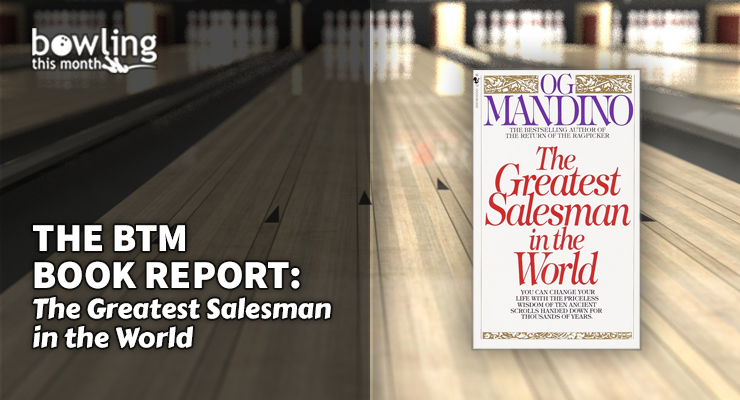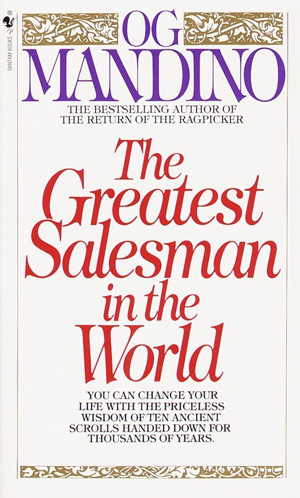| About the Book | |
|---|---|
| Title: | The Greatest Salesman in the World |
| Author: | Og Mandino |
| Length: | 128 pages (paperback) |
| Publisher: | Bantam |
| Copyright Year: | 1968 |
The Greatest Salesman in the World by Og Mandino is told as a fictional story around a central character who was given scrolls with the lessons needed to become a great salesman. While the book attempts to consistently bring the advice back to being a great salesman, the points made in the story are applicable to many areas of life, including sports.
In this parable, the first “scroll” presents itself as the way to master the lessons in all the remaining scrolls. Starting off with several metaphors about starting anew, the key learning here is the method for mastering the other lessons: reading each lesson three times per day and then practicing each lesson every day for a month before moving on to the next one. This repetition is seen throughout the book as each scroll’s main topic is presented several times within each chapter. In reality, the topics of repetition and practice are the foundation to mastering any skill. Of the remaining scrolls, there are four in particular that are most applicable to the sport of bowling.
Scroll 2 says, “I will greet this day with love in my heart.” Presented as a means to effectively negotiate, the second scroll’s mindset teaching is all about effectively approaching people and yourself with a positive attitude and self-care. This final point, highlighting both mental and physical health as a means to success, is probably one of the most important lessons in the book. Continuing from this point, the third scroll (“I am nature’s greatest miracle”) uses strong visuals to drive a single point home: that you are unique and that you should value your strengths while working to improve weaknesses.
Scroll 6’s message is, “Today I will be master of my emotions.” In one of the best chapters of the book, the author offers advice to effectively master your emotional responses, or at least to counteract them. Examples include laughing in the face of sadness or remembering past success in the face of self-doubt. In any endeavor, this kind of advice rings true, but what makes this chapter unique is the moderation of positive emotions as well. To avoid climbing too high ...
Already a premium member? Click here to log in.



